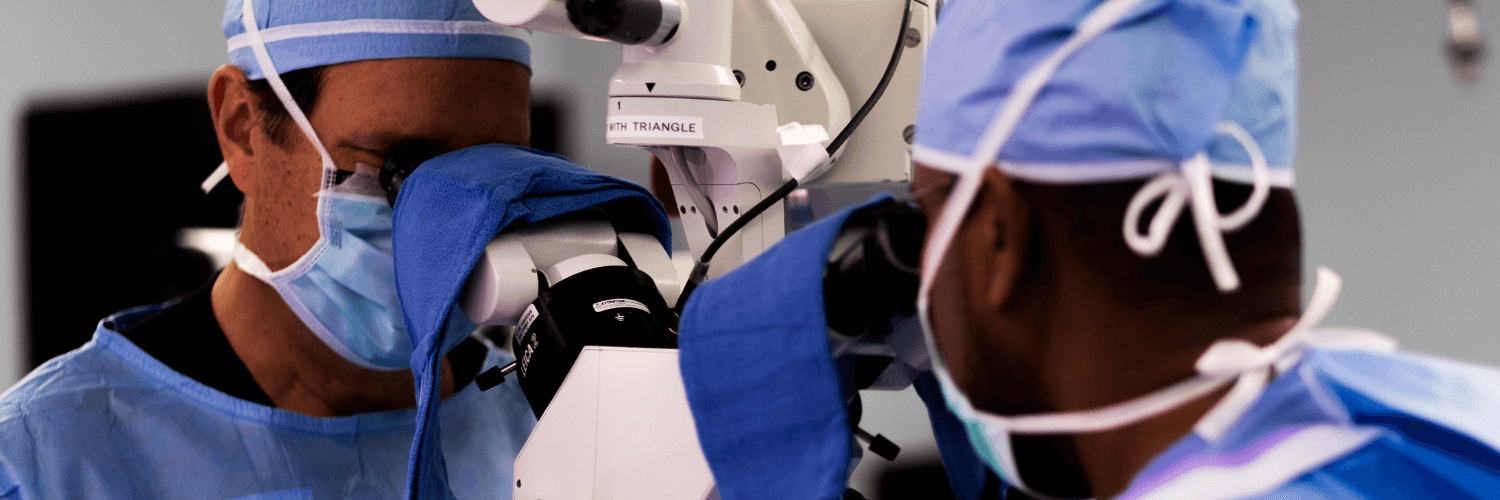Most women with breast cancer notice negative changes in their sex lives. By some estimates, over 80% of women treated for breast cancer end up with sexual problems. Unfortunately, at least half of women do not recall discussing sexual problems with their oncology team. Most women do not get effective professional help for their problems, even years after completing active breast cancer treatment.
A number of cancer treatments interfere with the physical systems needed for a healthy sexual response. Obviously, loss of sexual sensation on the breast and nipple is a problem with total mastectomy, and less commonly, with partial mastectomy. For some women, breast and nipple caressing are crucial to sexual pleasure. Others do not rely on it as much. For many, however, losing pleasure from breast caressing is a major grief, and may even interfere with ability to reach an orgasm. Breast reconstruction can do a great job of restoring the breast and nipple, helping women to feel whole and attractive. Until recently, though, most women have had very limited sensation on the skin of their rebuilt breasts, even after months of healing. New, innovative techniques are leading to more sensation, but these rarely preserve the erogenous responses to nipple caressing.
Research has found that many women wished their surgeon had discussed breast sensation, rather than just focusing on appearance. In a study I did years ago at the Cleveland Clinic, women who had partial mastectomy were more likely than women with breast reconstruction to continue to include breast caressing in their sex lives and to report pleasure from breast caressing. That was the only major difference in sexual experience between the two breast cancer treatment groups.
Although attention to sex after breast cancer often focuses on changes to the breast itself, the most devastating changes in sexuality are usually related to chemotherapy or hormonal therapy. Women are more likely to have loss of desire for sex, along with vaginal dryness and pain during sex–especially women under 50 who end up in sudden menopause. Chemotherapy drugs often damage a woman’s ovaries. It is also increasingly common to give younger women drugs that directly shut down the ovaries as part of hormone therapy for breast cancer. When the ovaries stop producing the hormone estrogen, less blood flows into the vaginal walls and vulva when a woman becomes sexually excited. Her vagina loses some of its ability to stretch out during sexual arousal. The vaginal lining does not produce the clear, slippery fluid that makes the vagina moist and ready for sexual activity that includes penetration with a penis, finger, or sex toy. Similar changes (sometimes even more severe) take place when women in menopause are put on aromatase inhibitors. These hormones stop any tissues of the body (such as fat cells) from making estrogen once the ovaries have shut down after menopause.
The major sexual problem after breast cancer treatment is that sexual caressing and penetration become painful. Pain plays a major role in decreasing women’s desire for sex. It is hard to look forward to lovemaking if you know it will hurt! Many women think that the only potential remedy is to use estrogen. Gynecologists often see little risk for breast cancer survivors in using the newer, low-dose vaginal estrogen suppositories or rings. However, breast oncologists may be more worried about any estrogen increasing a woman’s risk of recurrence. Women can feel caught in the middle between fear of cancer and a miserable sexual quality of life. Women have been so reluctant to try vaginal low-dose estrogen that it has been difficult to do studies large enough to identify any actual risk of breast cancer recurrence.
A first step without any breast cancer risk, however, is to use a good vaginal moisturizer at least 3 to 5 times a week. Some women need to use these products nightly. Vaginal moisturizers are gels or suppositories that you put inside of the vagina and spread around the delicate skin of the vulva. Some products contain a version of hyaluronic acid—a moisturizing substance made naturally in our bodies. You may have seen it mentioned in ads for facial moisturizers. It seems to work pretty well on the vulva and in the vagina too. In addition to using the vaginal moisturizer regularly, women should also use a vaginal lubricant when they actually have any kind of sexual activity. A silicone or water-based lubricant is healthier than using any oil-based lube. Even coconut oil or almond oil can contribute to bacterial infections in the vagina. Slather the lube on all surfaces—women, men, sex toys–and keep lube handy during sex to reapply if it dries out. If moisturizers and lubes do not prevent pain and irritation with sex, low-dose vaginal estrogen (or another low-dose hormone vaginal insert, prasterone) may be worth considering. In fact, the doses of these vaginal hormones are so low that many women still need to alternate using them with the nonhormonal vaginal moisturizers. Women who have developed a lot of vaginal tightness may benefit from consulting a physical therapist or sex therapist who can guide them in learning to control the pelvic floor muscles. Treatment often includes using vaginal dilators that come in a range of sizes.
A lot of breast cancer survivors wonder if it is worthwhile to pay several thousand dollars out-of-pocket for new “vaginal resurfacing” treatments using lasers or heat. These treatments mildly damage the vaginal lining, promoting new growth of small blood vessels and stretchy tissue. Insurance does not cover these treatments—and for a reason. Although results for the first few months look promising, retreatment is usually needed after a while. In 2018 the Food and Drug Administration warned companies making this new equipment that it was not cleared to treat vaginal menopause symptoms. Recently a study randomized 85 menopausal women to either get the real laser treatment or a sham version. Women could not tell whether they got the real treatment or the placebo. After a year, neither group had much improvement in pain with sex, and the real treatment was no better than the sham version.
Our culture tends to focus on magical “cures,” such as “female Viagra,” fancy, “smart vibrators,” lasers, etc. I am all for more research and development of treatments for women’s sexual problems, but the benefits demonstrated so far are limited. Women’s sex lives depend a lot on our emotions, attraction to a partner, and erotic thoughts. In one of the early surveys of women about sex after breast cancer, those with the best sex lives were women who had recently found a new sexual partner. Exploring sex with someone new is obviously exciting in itself—and add the validation of having someone find you sexy and attractive even though you have gone through breast cancer treatment! I am not advocating abandoning a long-term relationship, but many couples can have better sex with a little effort. A mental health professional trained in sex therapy can help you improve sexual communication, share sensual touching and kissing without demands for “performance,” try new types of sexual touching, make the setting for sex more special, and work on feeling sexy and attractive whether or not your appearance has changed. For single women, dating after breast cancer is another issue that may benefit from some psychotherapy. I hope this blog will provide some ideas on how to move forward with sex after cancer.
Leslie R. Schover, PhD is a clinical psychologist licensed in Texas and specializing in sexuality and fertility problems related to cancer and other chronic illness. She retired several years ago from her academic career, including 13 years at the Cleveland Clinic Foundation and 21 on the faculty of the University of Texas MD Anderson Cancer Center. She now has a telehealth private practice and using her ePassport credential can provide services to patients in states that belong to PSYPACT. Her practice website is: https://leslie-schover.clientsecure.me/

It is a great honor to be part of a team with such a rich tradition of excellent patient care, shares Dr. Andrew Gassman, the newest surgeon to join the PRMA team. Years and years of procedure fine tuning with individualized care means our patients truly benefit from both efficiency and experience.
Leave Comment
Sign Up for Our Monthly Newsletter
Continue Reading

Should I Get Breast Reconstruction Surgery?
Should I Get Breast Reconstruction Surgery? December 03, 2021 Share on Facebook Twitter Linkedin Should I Get Breast Reconstruction Surgery? After breast cancer treatment, Breast reconstruction helps women become physically and emotionally whole again. Breast Reconstruction restores something that nature once provided but cancer has taken away. Unfortunately, many patients with breast cancer who have […]

Guest Post: Improving Women’s Sex Life After Breast Cancer
Guest Post: Improving Women’s Sex Life After Breast Cancer November 22, 2021 Share on Facebook Twitter Linkedin Most women with breast cancer notice negative changes in their sex lives. By some estimates, over 80% of women treated for breast cancer end up with sexual problems. Unfortunately, at least half of women do not recall discussing […]

What NOT To Say To Someone Who’s Had A Mastectomy
What NOT To Say To Someone Who’s Had A Mastectomy November 11, 2021 Share on Facebook Twitter Linkedin If you have a loved one who is preparing for or recovering from a mastectomy, there are a few things you should avoid saying – and a few things you should say instead. Don’t say “You’re too […]

Emotional Wellness and Breast Cancer
Emotional Wellness and Breast Cancer November 02, 2021 Share on Facebook Twitter Linkedin When you’re diagnosed with breast cancer, it’s normal to experience a range of emotions at different points during your treatment and recovery. You may be surprised and overwhelmed at first and then become terrified or angry. It’s common to have both good […]

What Everyone Should Know About Breast Cancer
What Everyone Should Know About Breast Cancer October 19, 2021 Share on Facebook Twitter Linkedin Breast cancer affects many women in the United States and around the world. For every 8 women in the United States, 1 will be diagnosed with breast cancer during her lifetime. Women, and men, also have an increased risk of […]

What October Means To Me
What October Means To Me October 07, 2021 Share on Facebook Twitter Linkedin Breast Cancer Awareness Month is celebrated around the country every October. The occasion brings attention to breast cancer, but many people affected have mixed feelings about it. There’s no doubt this awareness campaign means different things to different people. For some, it’s […]

Top 3 Reasons Patients Delay Breast Reconstruction
Top 3 Reasons Patients Delay Breast Reconstruction September 27, 2021 Share on Facebook Twitter Linkedin When considering breast reconstruction after breast cancer surgery, patients have two timing options. Immediate or delayed. Immediate breast reconstruction is performed at the same time as the mastectomy. There are many benefits to immediate reconstruction. These include shorter recovery and […]

Should I Lose Weight Before DIEP Flap Breast Reconstruction?
Should I Lose Weight Before DIEP Flap Breast Reconstruction? September 16, 2021 Share on Facebook Twitter Linkedin When preparing for DIEP flap breast reconstruction, many women wonder if they should lose weight. This is an excellent question! While there is no textbook answer, there are some general recommendations we share with patients. Is weight loss […]

How Long Does It Take For The Swelling To Go Down After Breast Reconstruction Surgery?
How Long Does It Take For The Swelling To Go Down After Breast Reconstruction Surgery? September 09, 2021 Share on Facebook Twitter Linkedin Following breast reconstruction surgery, the body will naturally swell as part of the healing process. Although swelling can sometimes be uncomfortable, it is an important part of the body’s natural recovery. What […]

DIEP Flap Reconstruction: Exploring the Science Behind the Surgery
DIEP Flap Reconstruction: Exploring the Science Behind the Surgery August 10, 2021 Share on Facebook Twitter Linkedin The DIEP flap procedure is the most advanced type of breast reconstruction and is considered the gold standard at PRMA Plastic Surgery. Studies have shown the procedure provides women a good long-term quality of life, which is the […]


No Comments